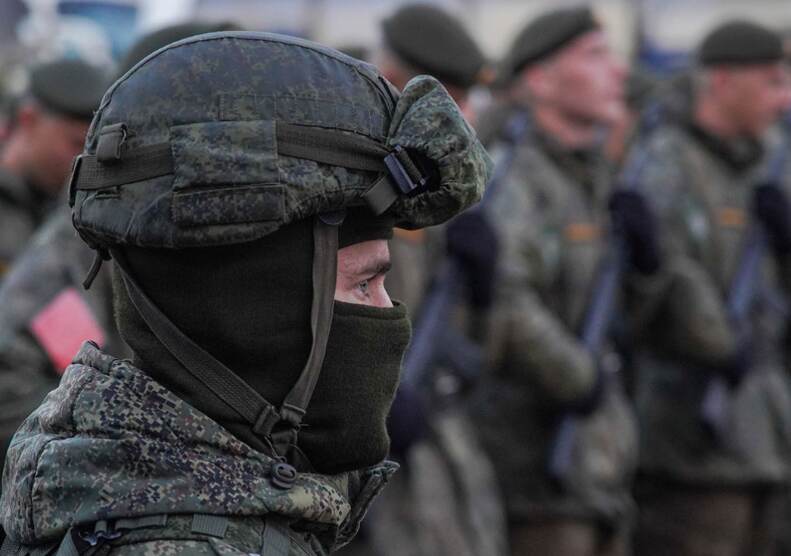Mass Exodus: Troops Flee After Mutiny in Russia, Sending Shockwaves Through Region
Recent reports reveal that a prominent group's troops have left the country after a mutiny in Russia, leaving experts questioning the motivations and potential impact on regional and international security. The situation raises concerns and prompts speculation about internal dynamics within the organization. The departure also poses challenges for the group's leadership and may reshape power dynamics in the region, presenting both opportunities and risks. The global community awaits further analysis to understand the long-term effects on the geopolitical landscape.
In a significant turn of events, recent reports indicate that numerous troops belonging to a prominent group have left the country, following a brief mutiny that unfolded in Russia.
The move comes as a surprise to many, raising questions about the underlying factors and implications for the future. The departure of hundreds of soldiers from the group has left experts and analysts curious about the motivations behind such a significant exodus.
The timing, following the wave of mutiny in Russia, adds a layer of intrigue to the situation. Speculation runs rife as to whether these actions are connected to the recent unrest or driven by other internal dynamics within the organization.
While details surrounding the departure remain scarce, the repercussions of this development cannot be understated. Beyond the immediate implications concerning the stability and strength of the group itself, concerns arise regarding the potential impact on regional and international security.
The retreat of such a sizable military force raises questions about the security landscape and the potential redistribution of power in the region. Observers and neighboring countries will undoubtedly monitor the situation closely, attempting to discern the broader implications of this surprising chain of events.
Diplomatic channels and intelligence communities are speculated to be in high gear, assessing the potential consequences and seeking to gather the necessary information to adapt their strategies accordingly.
The departure of troops sheds light on the internal dynamics within this influential group. It brings attention to the potential factors at play, such as factionalism, ideological shifts, or even disagreements within its leadership.
It remains to be seen whether this occurrence signifies a broader splintering or a momentary disruption in their operations. The group's departure also has significant psychological and public relations implications, as it presents a new challenge for the organization's leadership to address.
The sudden loss of a considerable number of troops might not only undermine the group's reputation but also prompt questions about its cohesion and long-term viability, both internally and externally. The international community and regional actors are keenly watching developments, as they assess how this evolving situation could influence the wider geopolitical landscape.
The group's departure could catalyze changes within the power dynamics of the region, potentially reshaping delicate alliances or opening up opportunities for emerging players.
As the global community awaits further information and analysis, it is clear that the departure of hundreds of troops following the mutiny in Russia is a turning point with far-reaching implications.
The repercussions go beyond the immediate impact on the group itself, raising concerns about regional security and presenting both challenges and opportunities for various stakeholders.
The coming days and weeks will be crucial in determining the consequences of these unexpected events and their long-term effects on the complex geopolitical landscape.




